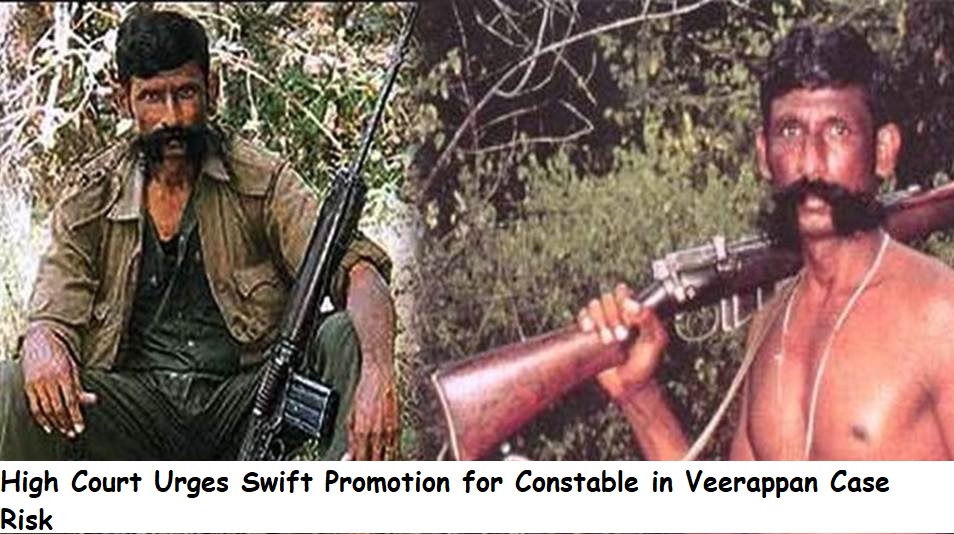


The Madras High Court has recently issued a directive to the State Government and police authorities, instructing them to expedite the promotion of Sumathi, a Grade I Constable. Sumathi was assigned the task of gathering information about the notorious Forest Brigand Veerappan. Justice K. Kumaresh Babu emphasized that Sumathi had undertaken a significant risk and performed her duties exceptionally well. The court highlighted the disparity in treatment, noting that another Sub-Inspector from the Special Branch, assigned a similar task, had already received accelerated promotion.
Justice K. Kumaresh Babu contended that denying promotion to Sumathi would be discriminatory and a violation of Article 14 of the Constitution. The judge expressed the view that Sumathi's contributions surpassed those of the mentioned Sub-Inspector, Rajavel, and that rejecting her promotion on the grounds of routine tasks assigned to the Q Branch would be arbitrary. The court intervened, asserting that such a decision would contravene constitutional principles.
The case unfolded through a petition filed by Sumathi challenging the Director General of Police's order that rejected her representation for accelerated promotions under various Government Orders. Sumathi, who joined the police department in 1997 as a Grade II Constable and later achieved the rank of Grade I Constable, recounted her involvement in gathering information about Veerappan during her tenure at Krishnagiri Armed Reserve.
She explained that she and her husband had relocated to a village where Veerappan's wife, Muthulakshmi, resided. Despite the risks involved, Sumathi actively participated in the task. Following Veerappan's demise, the government accorded accelerated promotions to several police personnel involved in eliminating the forest brigade and its associates. However, Sumathi's request was denied, citing her affiliation with the Q Branch of CID and the obligation to perform regular duties.
The Additional Government Pleader argued that Sumathi, as a member of the Q Branch, was bound by the nature of her work, involving various risks. It was asserted that she had not undertaken any special tasks and was duty-bound to perform routine duties. The government further mentioned the scrapping of a policy decision and the subsequent reintroduction of promotions, accompanied by the formation of a committee for evaluation.
The court, in its analysis, noted the differential treatment between Sumathi and Rajavel. Despite both being assigned the task of gathering information, Rajavel had received accelerated promotion, while Sumathi, who had taken a more significant risk by moving to the village, faced rejection. The court found the reasons provided by the authorities for Sumathi's denial of promotion to be in violation of the principles outlined in Article 14 of the Constitution.
In conclusion, the Madras High Court's directive underscores the need for fair and unbiased treatment in matters of promotions within the police force. The court emphasized that individual contributions and risks should be duly recognized and considered, ensuring that decisions adhere to constitutional principles. Sumathi's case serves as a reminder of the importance of upholding principles of equality and non-discrimination in the professional realm.
TAGS: Sumathi Grade I Constable Veerappan Justice K. Kumaresh Babu Discrimination Article 14